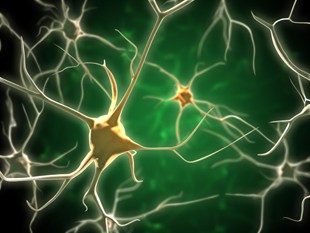Tyrosine Fact Sheet
About Tyrosine
Tyrosine, or L-tyrosine, is a nonessential amino acid, which means the body derives it from another amino acid, phenylalanine, rather than the diet, and is a precursor of the neurotransmitters norepinephrine and dopamine. Neurotransmitters help nerve cells communicate and influence mood, increase energy and alertness, thus relieving depression.
Tyrosine also helps produce the pigment melanin responsible for hair and skin color and helps support the organs responsible for making and regulating hormones, including the adrenal, thyroid, and pituitary glands. It is involved in the structure of nearly every protein in the body.
The disease prevention and health benefits of tyrosine include:
- Stress relief
- Parkinson’s disease
According to the Global Organization for Stress, 75% of people are reportedly experiencing significant stress in the workplace and other life areas. Symptoms include:
- Headache
- Muscle tension or pain
- Chest pain
- Fatigue
- Change in sex drive
- Stomach upset
- Sleep problems
- Anxiety
- Restlessness
- Lack of motivation or focus
- Irritability or anger
- Sadness or depression
According to a study, taking a tyrosine supplement improves cognition and performance in soldiers under stressful conditions (8).
Tyrosine and Aging
While cognitive decline impacts adults in varying degrees, for most the adult brain reduces in size by an average of 5 to 10% over a lifetime. Hard clusters of damaged or dying neurons (nerve cells) can form plaques and due to this and age-related inflammation, Alzheimer’s disease may develop.
Tyrosine is unable to cross the blood–brain barrier and improve the status of brain dopamine, however, researchers have combined tyrosine with a fatty acid mixture that delivered the amino acid and the result significantly improves improved the status of Parkinson’s disease in an animal study. Improved symptoms included overcoming the exaggerated eye-blinking induced by a dopamine deficiency (7).
Oxidation is an additional age-related disease precursor, which environmental pollutants and the over-burdening of the body’s natural stores of antioxidants exacerbate. Healthy cells are damaged when oxygen circulates in the body, and the resulting free radicals are normally neutralized by the body’s antioxidant defense system. In modern times, however, the sheer high-level load of toxins in the environment resulting from stress increases the number of free radical induced mutations in healthy DNA, which if left untreated replicate and develop disease. To compensate for the extra oxidation damage, supplementing with dietary or nutraceutical antioxidants is necessary for preventing cancer, heart disease, Parkinson’s and Alzheimer’s disease. Tyrosine has a powerful antioxidant capacity. In a study, researchers found that tyrosine had a higher antioxidant capacity compared with vitamin C, uric acid, vitamin E and taurine (6).
Do I Have a Tyrosine Deficiency?
A tyrosine deficiency is uncommon, however, some people cannot process phenylalanine due to an inherited disorder called phenylketonuria (PKU) which prevents them from making tyrosine. The symptoms of a tyrosine deficiency are:
- low blood pressure
- low body temperature
- an underactive thyroid
How Can I Add Tyrosine to my Diet?
Food sources (phenylalanine): Seaweed, soy, egg, cottage cheese, salmon, turkey, quail, shrimp, pork, mustard greens, elk, buffalo and moose.
Supplementing with Tyrosine
A tyrosine supplement is available as an individual pill or powder, or as a component in an amino acid formula.
How Much Tyrosine Should I Take?
For sleep deprivation, 150 mg per kg of body weight.
A tyrosine supplement should be taken at least 30 minutes before meals three times per day. Taking vitamins B6, B9 (folate) and copper along with tyrosine helps the body convert tyrosine into important brain chemicals.
Side Effects
People who have migraine headaches should avoid tyrosine, as it can trigger migraine headaches and stomach upset. Those with hyperthyroidism or Graves disease should avoid tyrosine supplements because it may increase the level of thyroid hormone.
Contraindications
A Tyrosine supplement may contraindicate with the following medications:
- Thyroid hormone
- Levodopa (L-dopa)
- Monoamine Oxidase Inhibitors (MAOIs)
- Isocarboxazid (Marplan)
- Phenelzine (Nardil)
- Tranylcypromine (Parnate)
- Selegiline
References
- University of Arizona. The Biology Project: Biochemistry. “Tyrosine Y (tyr).”
http://www.biology.arizona.edu/biochemistry/problem_sets/aa/Tyrosine.html - Food Nutrition Data. “Foods Highest in Tyrosine.”
http://nutritiondata.self.com/foods-000087000000000000000.html - DrWeil.com. “Tyrosine: Good Supplement for Depression?” 23 Feb 2010.
http://www.drweil.com/drw/u/QAA400692/Tyrosine-Good-Supplement-for-Depression.html - University of Maryland Medical Center. “Tyrosine.” 17 Jul 2011.
http://www.umm.edu/altmed/articles/tyrosine-000329.htm - van Overweld, Floris W.P.C., et al. Chemico-Biological Interactions. “Tyrosine as Important Contributor to the Antioxidant Capacity of Seminal Plasma.” 3 July 2000.
http://www.ncbi.nlm.nih.gov/pubmed/10936230 - Capuron, Lucile, et al. Biological Psychiatry. “Chronic Low-Grade Inflammation in Elderly Persons Is Associated with Altered Tryptophan and Tyrosine Metabolism: Role in Neuropsychiatric Symptoms.” 15 Jul 2011. http://www.ncbi.nlm.nih.gov/pubmed/21277567
- Yehuda, Shlomo. Pharmacology Biochemistry and Behavior. “Possible Anti-Parkinson Properties of N-(α-linolenoyl) Tyrosine: A New Molecule.” May 2002.
http://www.ncbi.nlm.nih.gov/pubmed/11900763 - Fernstrom, John D. American Journal of Clinical Nutrition. “Can Nutrient Supplements Modify Brain Function?” 2000. http://ajcn.nutrition.org/content/71/6/1669s.full.pdf
Last Reviewed 10/Mar/2014






